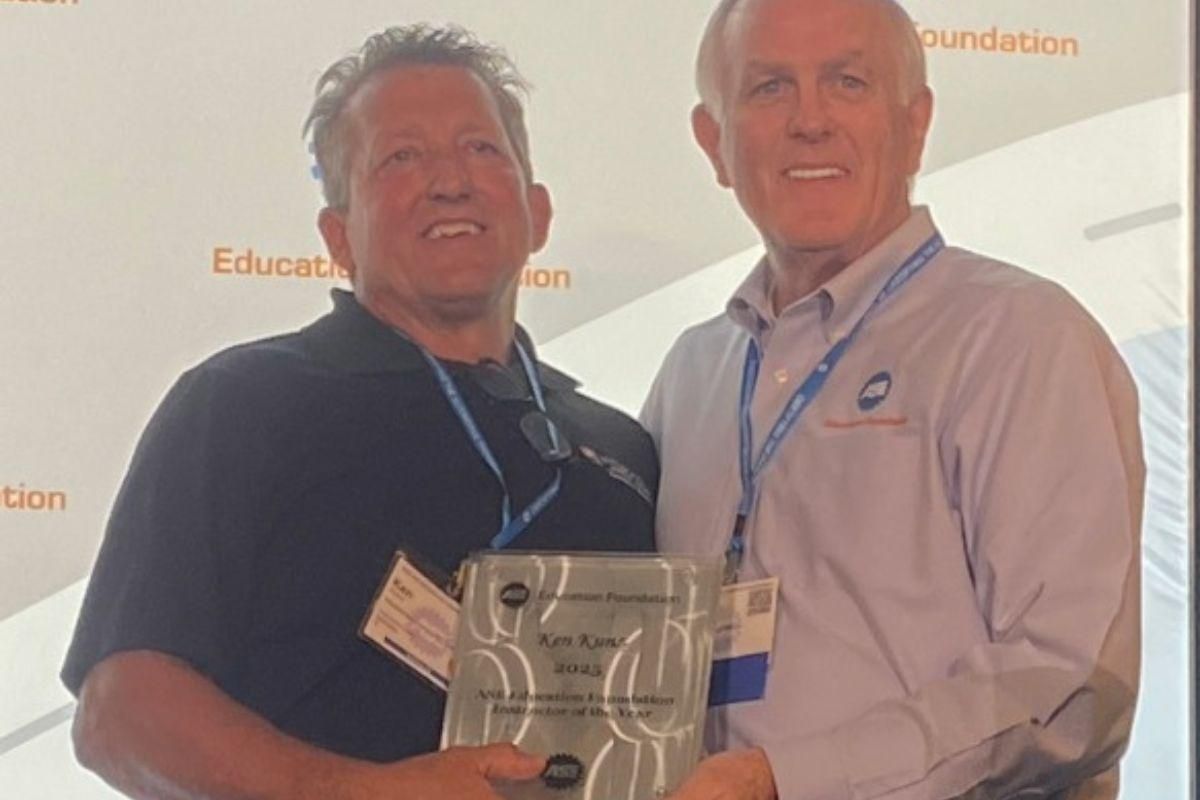Ken Kunz, an automotive technology instructor at Waubonsee Community College in Sugar Grove, IL, has been named the 2025 ASE Education Foundation Instructor of the Year.
The award was presented at the ASE Instructor Training Conference held recently in St. Louis, recognizing Kunz for his contributions to automotive education and his profound impact on students.
His recognition comes amid a persistent skilled labor shortage in the automotive repair sector, highlighting the critical role educators play in preparing the next generation of technicians.
Alyson Gaspar, CTE services manager at Waubonsee Community College, who nominated Kunz, emphasized his dedication.
"Ken makes every student feel like they belong to our program, and he instills pride in them for being a part of it," Gaspar said. She added that Kunz "pushes every student to be the best version of themselves that they can be and takes every opportunity to try something new."
Addressing the Skills Gap
The automotive industry, particularly the collision repair sector, continues to grapple with a severe shortage of skilled technicians. A 2023 report by the TechForce Foundation indicated that the demand for new automotive technicians far outstrips the supply, with an estimated gap of more than 60,000 technicians needed annually across all transportation sectors.
This deficit directly impacts shop management, leading to longer repair times, increased labor costs, and potential loss of revenue for collision centers.
Educators like Kunz are on the front lines of addressing this crisis. His focus on instilling pride and a sense of belonging in his students can contribute to better retention rates within the industry. High-quality training programs are essential for ensuring that new technicians are equipped with the skills necessary for modern vehicle repair, including ADAS calibration.
Investment in Future Workforce
Waubonsee Community College is committed to its automotive program, evidenced by its forthcoming "K-TEC" building unofficially named after Kunz.
Such infrastructure and program development are essential for attracting and training the next generation of technicians. For collision shop operators, supporting and engaging with these educational programs can yield a direct pipeline of qualified talent. This can include offering internships, providing advisory board input, or donating equipment, all of which contribute to a more robust local workforce.














